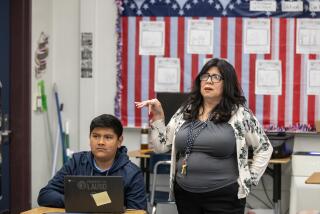LAUSD, teachers reach tentative deal on remote learning
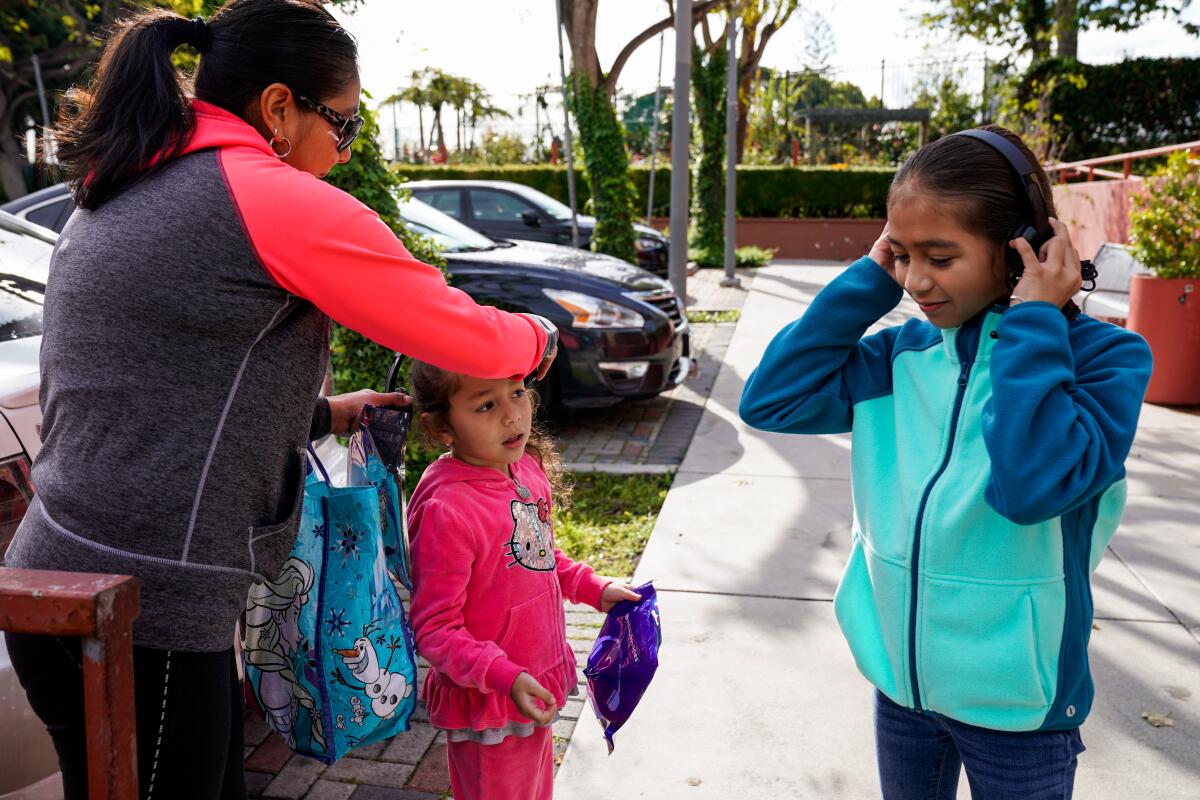
After a troubled and uneven spring of distance learning, Los Angeles schools will reopen in two weeks with a major reboot for learning at home that includes a structured schedule, mandatory attendance-taking and more required online time with teachers and counselors, under a tentative agreement between the teachers union and the district.
The official schedule will be shorter than a normal on-campus school day, beginning at 9 a.m. and ending at 2:15 p.m., with teachers expected to work an average of six hours while exercising broad discretion over how much time they spend teaching live online classes versus providing recorded sessions and supervising students working independently.
Time also will be set aside for the social and emotional needs of students and families through counseling.
The pact appears to resolve a major hurdle that was creating uncertainty among parents as the Aug. 18 start of the school year quickly approaches.
“We have all learned from our experiences with distance learning since March and we’ve applied what we learned to this agreement,” said L.A. schools Supt. Austin Beutner and teachers union President Cecily Myart-Cruz in a joint statement. “Our shared goal is to provide the best possible education for students in our schools.”
Similar agreements — which specify the amount of live online instruction and establish consistent schedules for families — are being hammered out across the state and nation. San Diego Unified announced an agreement with its teachers union last week as did Green Dot Public Schools, a unionized charter-school organization that operates 19 campuses in Los Angeles and Inglewood.
After campuses closed in March due to the coronavirus, L.A. Unified and other school systems worked quickly to hand out work packets and textbooks, provide computers and Wi-Fi hotspots, and train teachers in online instruction. But in the end, say experts, the shutdown appeared to exacerbate learning gaps affecting Black and Latino students, those from low-income families and those with disabilities.
“Live, quality, instruction, consistently tracking student engagement across the year, and clear communication with parents are all more important than ever for equity this fall,” said Elisha Smith Arrillaga, executive director of Education Trust-West, an Oakland-based research and advocacy group. “We are glad this plan includes first steps in each of these areas but hope even more detail will be provided.”
The more structured, 30-hour minimum week contrasts with an agreement in April with no set schedule and a 20-hour minimum week for teachers — although many went far beyond that.
UC Berkeley education professor Bruce Fuller called the new pact a vast improvement, but added that the obvious missing piece is attention to child care and academic supervision for low-income families, including those of essential workers.
“It’s a strong model for attentive parents who can afford to stay home,” Fuller said. “But I see no specificity for how educators will connect with kids in working-class families who fail to log on with teachers,” especially, he said, those parents who “must return to work to keep food on the table, working swing shifts and irregular hours, unable to oversee their child’s online learning.”
Another quick take was offered by Robin Lake, director of the Center on Reinventing Public Education at the University of Washington.
Compared with other school systems her research team has looked at, the L.A. plan provides “very little time for kids to feel connected and engaged in school,” Lake said. “Given how many LAUSD kids seem to have checked out last spring and how many must be struggling with isolation, this hardly seems like a good idea.”
She added: “The day itself is shorter than most districts we’ve looked at.”
A group of parents last week threatened to sue the district if the learning environment did not improve considerably. A representative for the group said Monday they continue to weigh their options as they review the new learning plan.
Speak Up, an advocacy group that has complained about the quantity and quality of distance learning, praised the consistent schedules and daily live instruction, but said the plan contains too little teaching time, especially given the accumulated learning loss. There also needs to be an opportunity for ongoing parent input, said Katie Braude, the group’s chief executive.
Concerns over academic progress spurred state lawmakers to insert instructional requirements into the budget bill, requiring teachers to take online attendance and document student learning. The rules reimposed the state’s minimum daily instructional minutes of 180 for kindergarten, 230 minutes for grades 1 through 3, and 240 minutes for grades 4 through 12.
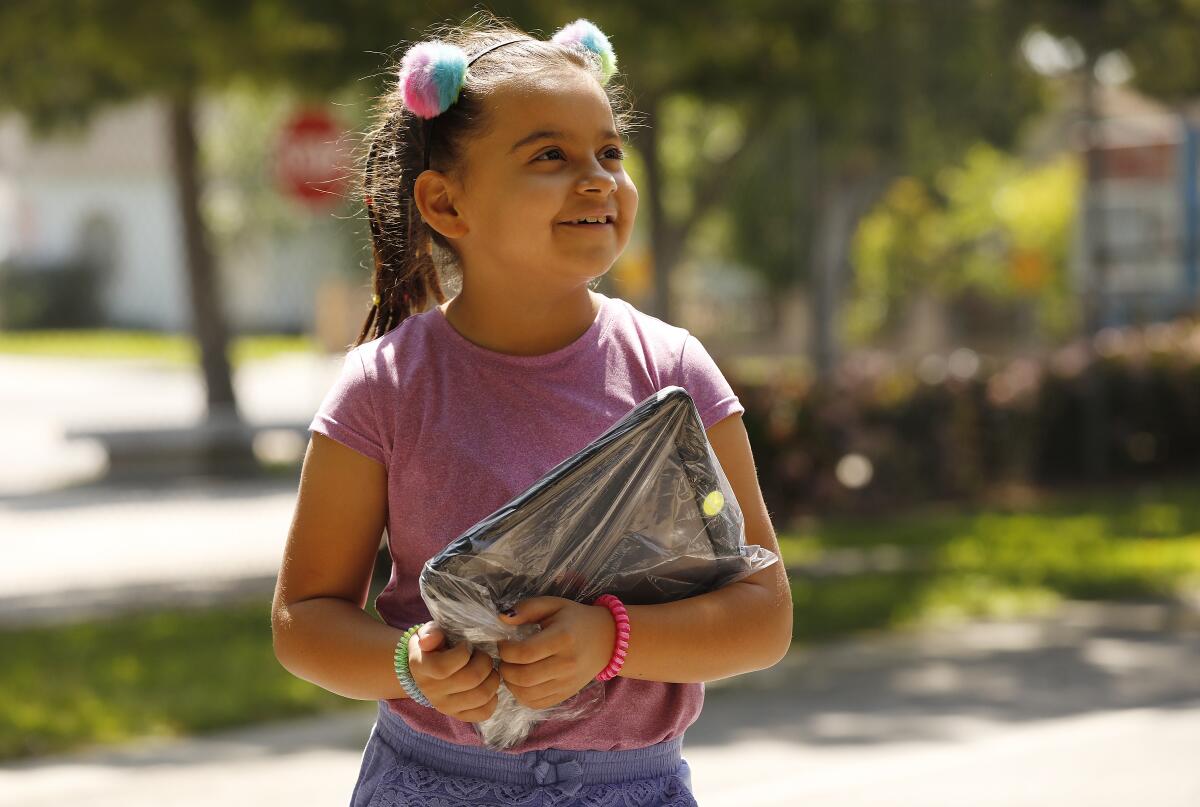
Another provision of the six-page agreement would limit a session of screen time for preschoolers to no more than 45 minutes.
The pact also establishes work expectations for non-teaching union members such as counselors, nurses and librarians, some of whom had difficulty connecting with the students they served or adjusting to altered roles after campuses closed. Numerous parents have complained about inadequate services for students with disabilities and those learning English.
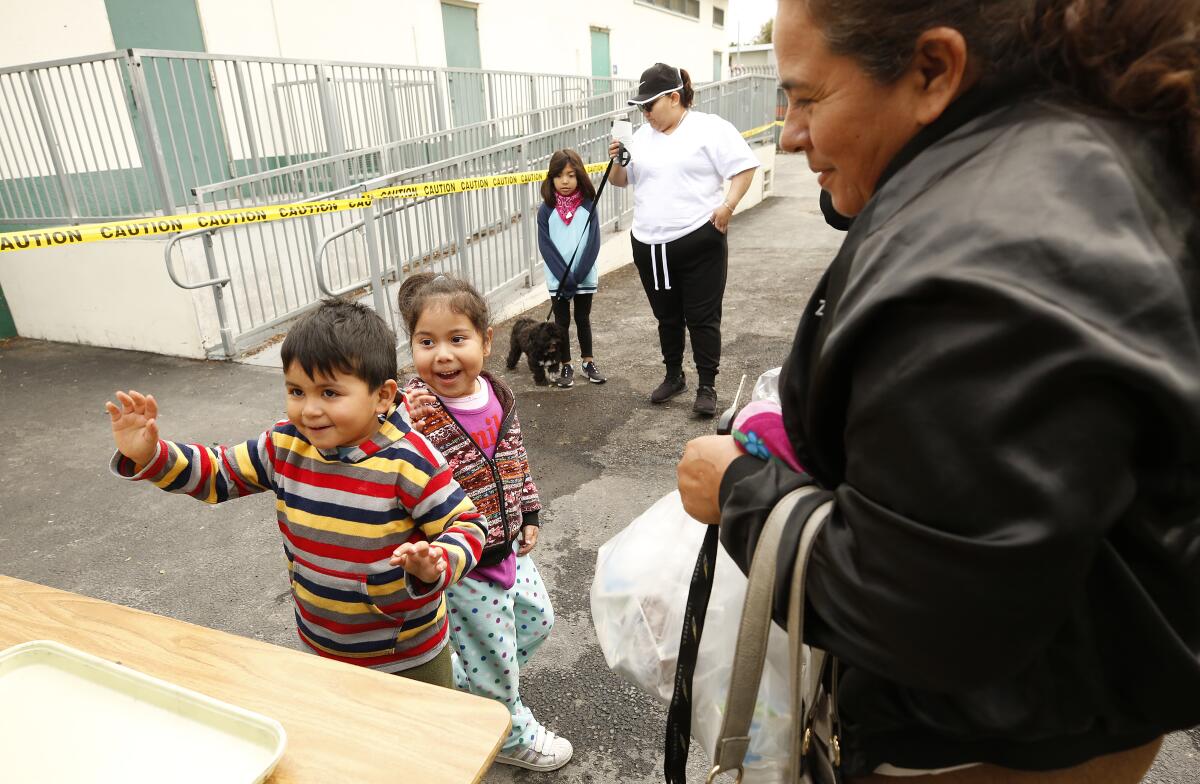
Under the tentative agreement, principals appear to have some latitude in assigning non-teachers duties when they cannot perform their regular tasks or cannot perform them in the usual way.
In addition, the district has agreed to a union demand to suspend annual performance evaluations of tenured teachers for the soon-to-begin academic year. The union also achieved other concessions in terms of supervision and evaluation. Administrators, for example, must give notice before joining virtual courses and web-conferencing sessions. And live instruction cannot be recorded by the district without prior notice and the consent of the instructor.
Negotiations continued until 10 p.m. Sunday. In general, the district was pushing for a longer school day than the union, which favored more flexibility.
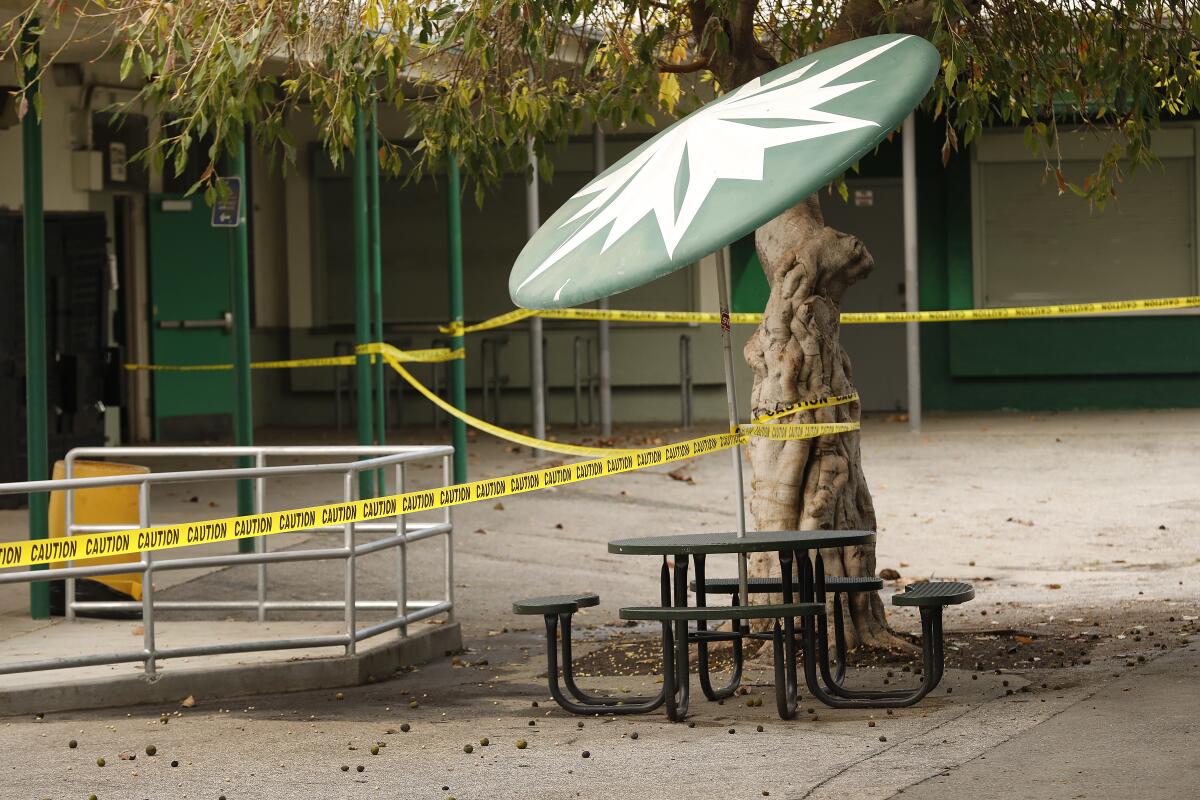
Under orders by Gov. Gavin Newsom, public and private schools located in counties on the state’s coronavirus watchlist cannot reopen for the start of school. Campuses could potentially reopen once virus transmission recedes and stabilizes for 14 days. Elementary schools can petition to reopen sooner.
The teachers union plans to have its members vote on the agreement next week. The school board, which also must approve the pact, is scheduled to meet Tuesday and could take up the matter.
A major item already on that agenda is whether the board will put a $7-billion school facilities bond before voters in November. Officials have said the bond would help replenish funds spent in response to the pandemic as well as to meet other needs.
The agreement would be in effect through December or until campuses reopen. Negotiations are continuing over how things will work when campuses are allowed to reopen.
More to Read
Sign up for Essential California
The most important California stories and recommendations in your inbox every morning.
You may occasionally receive promotional content from the Los Angeles Times.

